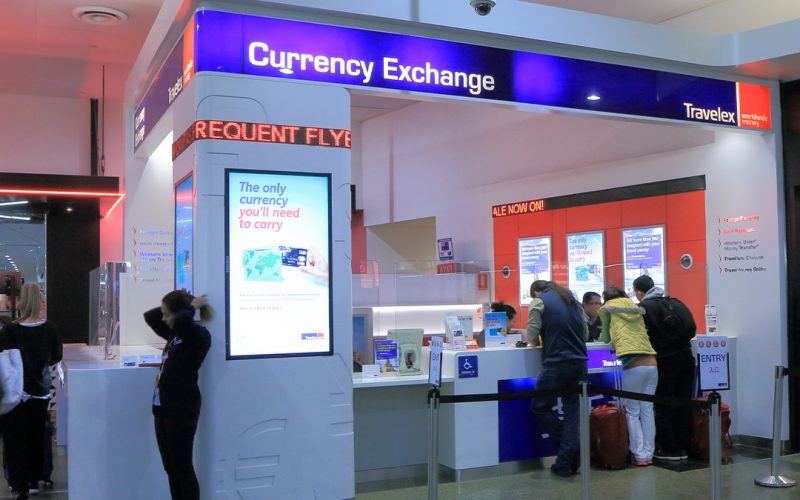When traveling in foreign countries, make certain to get the most out of your cash by gaining an improved understanding of forex exchange. There are various resources for exchanging money and making buys in another country, but many include significant fees or limitations. Be sure you understand every one of the benefits and drawbacks of each forex option, and that means you can avoid interacting with any unexpected charges after your trip. The simplest way to exchange money might not continually be your very best option. You may choose to foreign money exchange Sydney before going out of for a vacation or after coming to your vacation spot, but choosing the right one is determined by where you exchange your money.
Where MAY I Exchange Currency?
Know very well what options for exchanging money can be found before you exchange to get the best exchange rate possible. They are the mostly used forex options.
1. Airport Kiosks and FOREX Desks:
Although exchanging money at the airport may appear convenient, it is advisable to avoid, given the outrageously high exchange fees. Regarding to NBC Information, airport kiosks may charge up to 20% in fees and also have a lower exchange rate in comparison to bankers and private exchange companies. Exchanging money at the airport should be averted no matter what and saved limited to emergencies.
2. BANK CARDS:
Before counting on your credit credit card abroad, first, be certain to learn if it’ll be working internationally. If so, check out the potential fees which may apply while overseas. Some fees can include forex fees, transfer fees, or service charges on payday loans. Overall, credit card issuers receive the best rates and will offer you an exchange rate closest to the state rate.
3. Debit Credit cards:
Debit credit cards may charge overseas business deal fees and international ATM fees. Make sure to only use debit credit cards for cash withdrawals. If any issues happen from a purchase made by using a debit credit card, your profile is immediately debited, and it might take from a couple of days to over weekly for the erroneous demand to be corrected.
4. Foreign Currency Credit cards:
Prepaid forex credit cards work like credit or debit credit cards. They are really preloaded with a establish amount of money, which is deducted as the traveler uses it. However, there a wide range of fees and constraints which may apply, such as withdrawal and inactivity fees and withdrawal minimums and boundaries.
5. Traveler’s Assessments:
Traveler’s assessments work like US us dollars; you must find someplace that will exchange the traveler’s look for the local money. But unlike cash, traveler’s investigations include the added security to be substituted if lost or taken. However, because of the declining use of traveler’s bank checks, they may well not be accepted by some businesses.
6. Private Money Exchange:
Private money exchange businesses or forex businesses often contend with the other person to supply the best exchange rate, and that means you have a good potential for finding an increased exchange rate. Some fees apply and range depending on provider. Also, retain in mind these companies are less common in rural towns, so make certain to complete your deals before visiting out of large cities.
Methods to Avoid FOREX Fees
Forex fees may seem to be inevitable when exchanging money, but these options can help you avoid paying big fees.
1. No Foreign Transfer Fee BANK CARDS:
Unlike your present bank cards, which normally charge 3% of each dollar put in while in foreign countries, certain international bank cards have no international transaction fees.
2. International Travel Credit cards:
For inexpensive cash withdrawals, go for international travel credit cards or travel money credit cards. Cheaper than bank cards or debit credit cards, international travel credit cards are prepaid with a specific amount which means you can buy things or withdraw money as you travel. Some have even the choice of carrying several currency.
3. Local Banking companies:
Exchanging money at local bankers isn’t just convenient but also significantly less expensive than exchanging at airports or hotels. In addition they have a tendency to give respectable exchange rates.
4. NO to PAYDAY LOANS:
Using your bank card as an ATM greeting card requires anyone to pay a advance loan charge as well as the advance loan APR, which can both soon add up to large sums.
5. YES to Local Money:
Always drop if given the possibility to fee your purchase in USD. This might bring hidden transfer and change fees that will total a lot more than charging your purchase in the neighborhood currency. Insist that purchases are billed in the neighborhood currency.
There are always financial dangers involved with going internationally, which explains why it’s important to use extra safeguards making exchanges, acquisitions, or withdrawals in another country.
